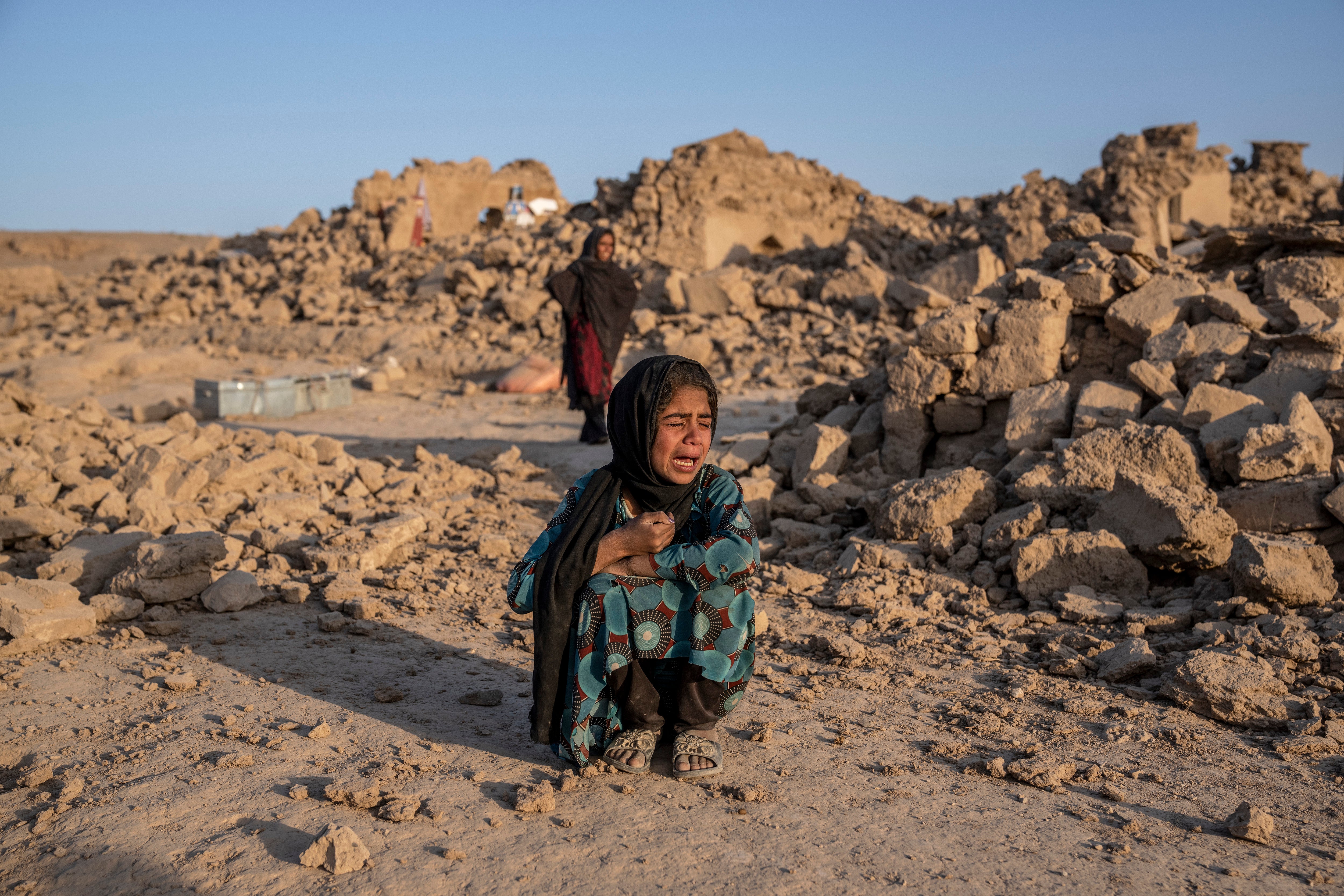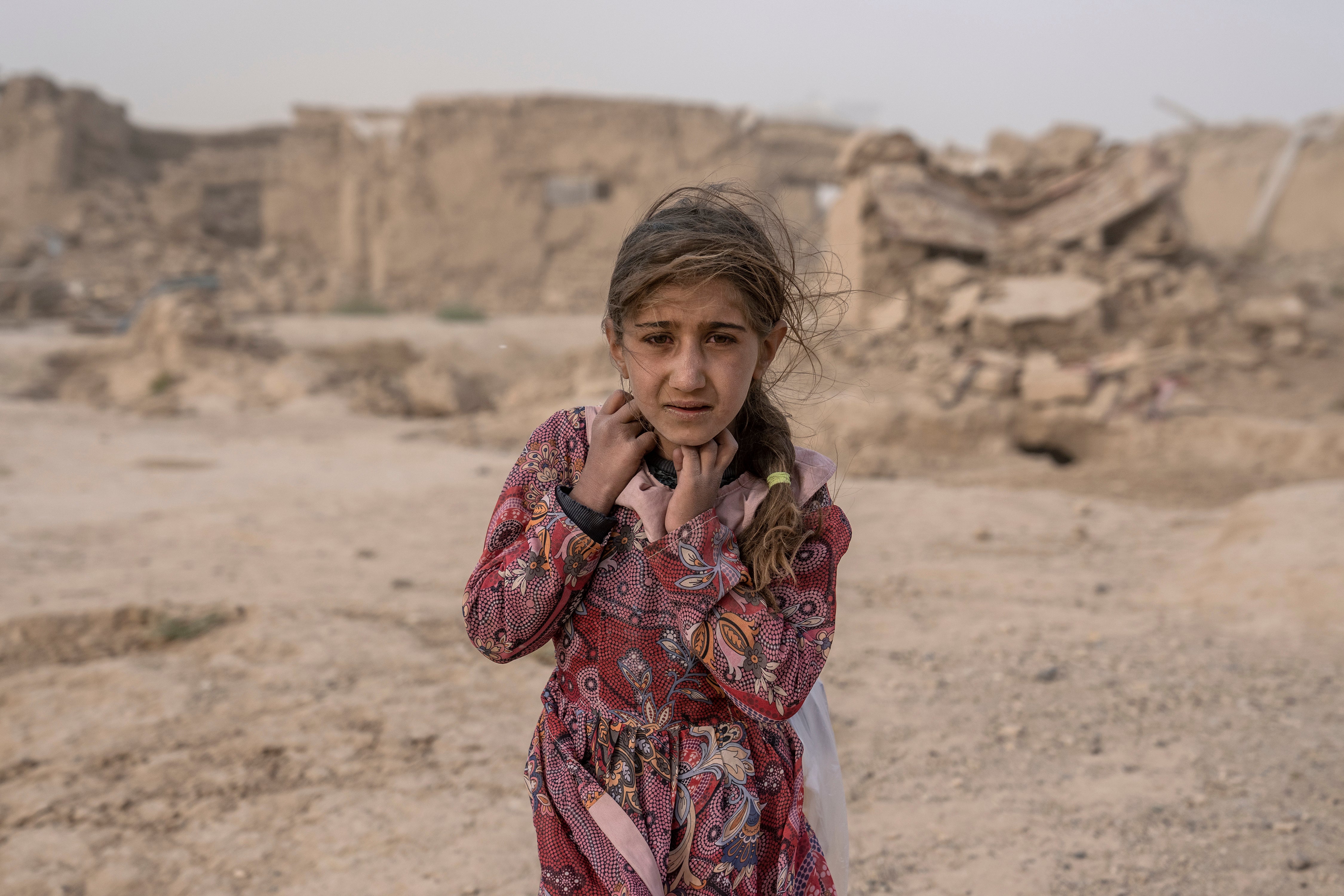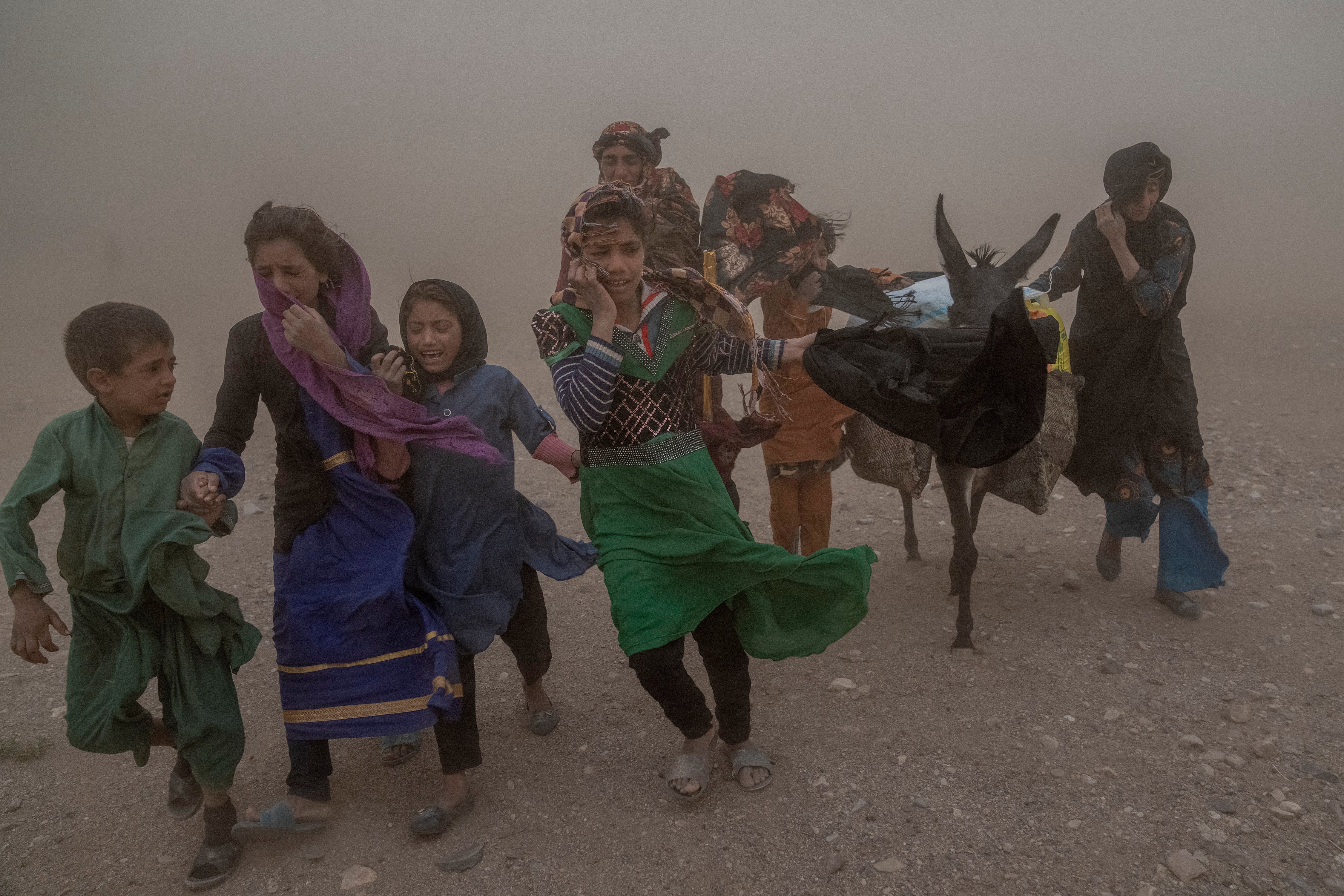Almost 100,000 Afghan children are in dire need of support after earthquakes, says Unicef
Aid needed to ensure children not only survive the winter but have a chance to thrive in the months and years to come
Your support helps us to tell the story
From reproductive rights to climate change to Big Tech, The Independent is on the ground when the story is developing. Whether it's investigating the financials of Elon Musk's pro-Trump PAC or producing our latest documentary, 'The A Word', which shines a light on the American women fighting for reproductive rights, we know how important it is to parse out the facts from the messaging.
At such a critical moment in US history, we need reporters on the ground. Your donation allows us to keep sending journalists to speak to both sides of the story.
The Independent is trusted by Americans across the entire political spectrum. And unlike many other quality news outlets, we choose not to lock Americans out of our reporting and analysis with paywalls. We believe quality journalism should be available to everyone, paid for by those who can afford it.
Your support makes all the difference.Almost 100,000 children in Afghanistan are in dire need of support, three months after earthquakes devastated the country's west, the UN children’s agency said on Monday.
A 6.3-magnitude earthquake shook Herat province on 7 October and a second strong quake struck the same province days later, on 11 October, killing more than 1,000 people. The majority of those dead in the quakes in Zinda Jan and Injil districts were women and children, and 21,000 homes were destroyed, Unicef said in a statement.
“The atmosphere in these villages is thick with suffering even 100 days after the earthquakes in western Afghanistan when families lost absolutely everything," said Fran Equiza, Unicef representative in Afghanistan.
"Children are still trying to cope with the loss and trauma. Schools and health centers, which children depend upon, are damaged beyond repair, or destroyed completely,” he added.

“As if this was not enough, winter has taken hold and temperatures hover below freezing," Mr Equiza said. "Children and families without homes live in life-threatening conditions at night, with no way to heat their temporary shelters.”
Unicef said it urgently needs $1.4bn (£1.1bn) in 2024 to meet the humanitarian and basic needs of 19.4 million Afghans, half of the population.

The Taliban’s failure to invest in public services has contributed to the deterioration of basic services, hindering the ability of vulnerable communities to recover from shocks and build resilience, the agency added.
“We are grateful to our donor partners who mobilized resources quickly, enabling Unicef to respond within days to the urgent needs of children and their families in Herat,” Mr Equiza said.
But more help is needed “to ensure that children not only survive the winter but have a chance to thrive in the months and years to come,” he added.

Daniel Timme, head of communications for Unicef in Afghanistan, said schools, homes, health facilities and water systems were destroyed.
“We have money coming in but it’s not enough. These communities need to be independent again. It’s not enough to put out the fire. We need to make it (Afghanistan) more resilient," Mr Timme said.
Separately and for all of Afghanistan, Unicef said on Monday that 23.3 million people, including 12.6 million children, are in need of humanitarian assistance" in 2024, "mainly due to the residual impacts of a protracted conflict, extreme climate shocks and the country’s severe economic decline.”
